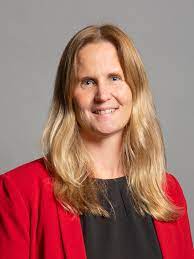Beth Winter – 2022 Speech on the State Pension
The speech made by Beth Winter, the Labour MP for Cynon Valley, in Westminster Hall, the House of Commons, on 12 December 2022.
Thank you, Sir Robert, for the opportunity to speak. Before I became an MP, I conducted more than 10 years of research on how poverty and inequality affect older people’s inclusion in society, so this subject is a particular interest of mine.
Pensioner poverty is significant in the UK, and it continues to increase. It is estimated that over 2 million—one in five—older people are living in relative poverty, with the greatest impact on women and other vulnerable groups. The level of pensioner poverty is similar in my country, Wales. The Older People’s Commissioner for Wales—I am very proud that Wales is still, I think, the only nation in the UK to have an older people’s commissioner—along with other organisations, has expressed serious concern about the detrimental impact that the cost of living is having on older people. My constituency had the third highest death rate from covid in the whole of the United Kingdom. That exemplifies the effect that poverty and the industrial legacy of Cynon Valley have on the health and wellbeing of older people.
Just before the summer, I conducted a cost of living survey in Cynon Valley. Nearly nine out of 10 pensioners who responded said that they felt worse off than they did 12 months earlier. Security in retirement was the biggest cause for concern among pensioners. One older person said:
“Us elderly people have worked very hard over the years and we get very little back to survive on.”
I pay tribute to a range of organisations in Wales, including Age Cymru and Age Connects in Cynon Valley, who are doing amazing work with older people, trying to empower them and giving them a voice in our communities.
The petition calls for an increase in the state pension to £380 a week and a reduction in the state pension age to 60, which would be a significant change. However, the demands of the petition open up a debate on where pension levels are set and what is the right age to start receiving the state pension.
At the 2019 election, my right hon. Friend the Member for Hayes and Harlington (John McDonnell), the then shadow Chancellor, rightly sought to deal with state pension inequality for women and offered a major compensation scheme. He said:
“This is an entitlement. This is not a benefit…This is a historic injustice. We have to address it.”
Over 4,000 women in my constituency are affected, and I am working closely with an active group of local women to continue campaigning for justice for the WASPI women. I have continued to support their demand for compensation, through demands for full restitution and through the minimum compensation proposal of the WASPI campaign and the all-party parliamentary group on state pension inequality for women. As we know, the ombudsman has found that there was maladministration, and we are now waiting for the full report to be published and for the recommendations for remedy. We must compensate these women.
The other group of older people I am working closely with in Cynon Valley are former miners. I welcomed the Business, Energy and Industrial Strategy Committee report in 2021, which recommended giving £1.2 billion held in the investment reserve to former miners. It really is regrettable that the Government have rejected the Committee’s recommendations, and I urge them to look at those again. The WASPI women and former mineworkers are examples of pensioners who have been let down—and let down massively—by the UK Government.
More broadly, there is a debate around the level of the state pension. Much is being said about how pensioners’ incomes have been safeguarded, compared with real changes to incomes and social security in recent years. However, pensioner poverty is growing, and the petition demands a significant increase in the state pension. The National Pensioners Convention says that the state pension should be set at 70% of the living wage and above the official poverty level, at £242.55 a week. That is what a pensioner in the Netherlands gets, with an equivalent of more than £250 a week. The petition demands £380 a week, and in Denmark the folkepension for a single pensioner is £370 a week. This can and should be done here. These other countries’ pensions put the demands of the NPC and this petition into perspective—they are not unreasonable demands.
The question about funding these increases is welcome. There are many sources of untaxed wealth that could deliver the revenues to pay for higher pensions. A wealth tax could raise in the region of £260 billion to £300 billion. The country has the money; it is a political choice not to redistribute the wealth of this country to ensure that older people and many millions of other vulnerable people have the money to maintain a basic standard of living. That is a basic human right, and everybody should have that entitlement.
Before I conclude, I will take the opportunity to highlight the fact that a third of those entitled to pension credit—over 750,000 people—do not claim it, although they are entitled to. As my hon. Friend the Member for Battersea (Marsha De Cordova) said, that equates to about £1.7 billion of unclaimed money. I urge the UK Government urgently to take action on this issue. I truly wish that they would pay as much attention to ensuring that people claim what they are entitled as they do to stigmatising people on social security benefits, who are entitled to that money and should have it as a matter of right.
To conclude, pensioner poverty is rising. Combatting it is a question of principle and values. If we are to achieve justice for pensioners, we must take action to deliver it.


